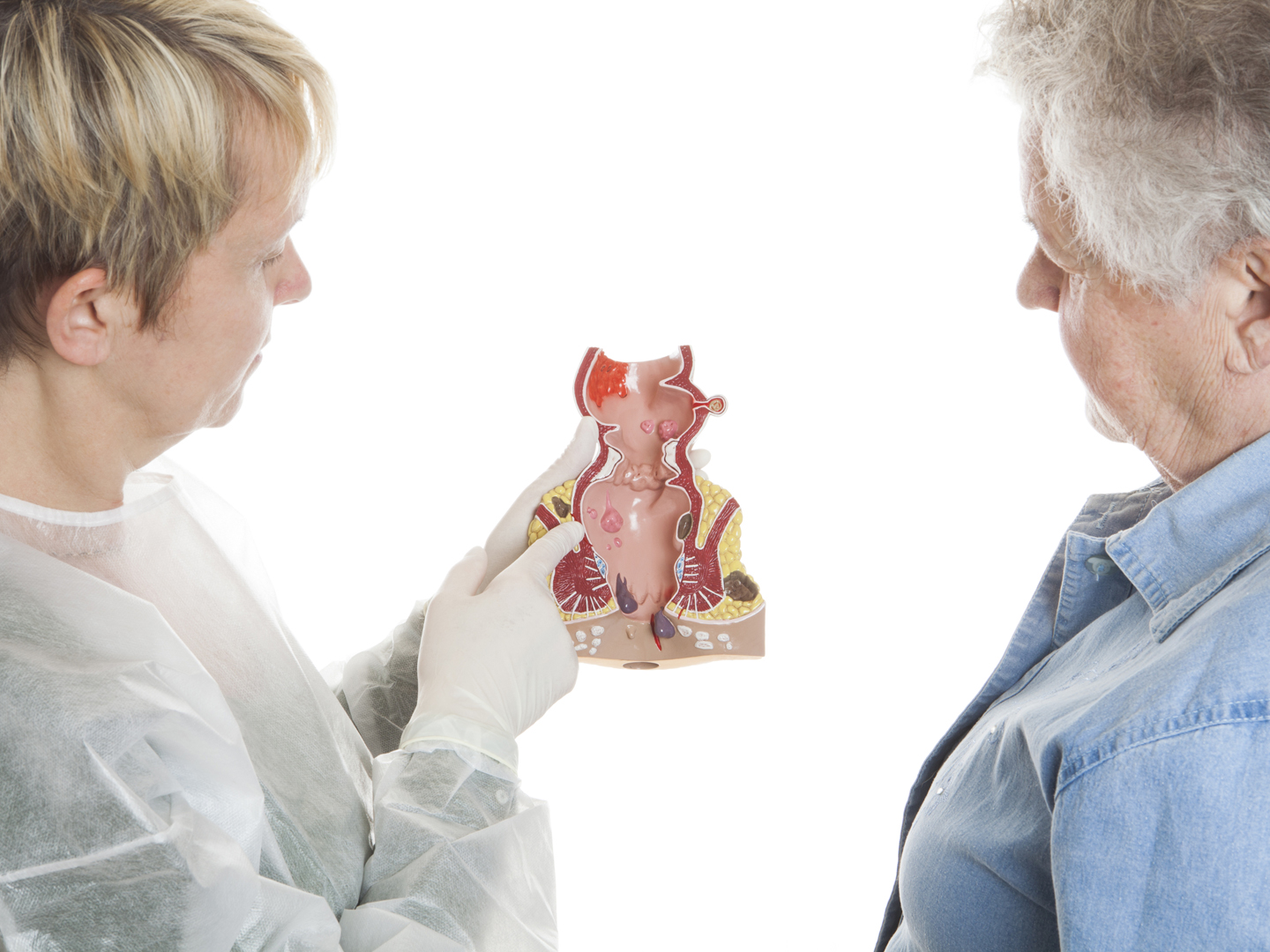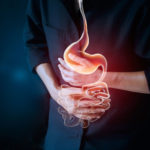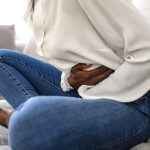Ulcerative Colitis

What is ulcerative colitis?
Ulcerative colitis (UC) is a type of inflammatory bowel disease (IBD). Inflammatory bowel diseases involve chronic inflammation of the intestine, and can take two basic forms. As ulcerative colitis, inflammation damages the lining of the colon. As Crohn’s disease, it is a more serious condition – inflammation harms the whole wall of the colon, not just the superficial lining.
Who is at risk for ulcerative colitis?
Ulcerative colitis seems to run in some families: about 20 percent of patients have a blood relative with some form of IBD inflammatory bowel disease. Men and women are affected equally. The disease can occur at any age but is most frequently diagnosed in those between the ages of 15 and 30. People of Ashkenazi Jewish heritage are at greater than normal risk, while African Americans have a decreased risk. Cigarette smoking, which seems to increase the intensity of flare ups in Crohn’s disease, appears to reduce the risk of ulcerative colitis. Any benefit of smoking, however, is offset by its multitude of negative health effects.
What are the symptoms of ulcerative colitis?
Symptoms of ulcerative colitis usually occur in “flare-ups” (lasting days to weeks) that involve loss of appetite, chronic diarrhea which is often bloody, cramping, pain in the abdomen, and weight loss. Severe flare-ups can involve high fever, intolerable abdominal pain, and peritonitis. If the inflammation is located higher in the colon, frequent stooling (as many as 20 a day) can occur. Stress can worsen symptoms but doesn’t necessarily cause the disease. The disorder can lead to a number of complications, including bleeding, toxic colitis, and even intestinal blockage. This occurs as a result of the swelling and scar tissue that can thicken the intestinal wall, narrowing the passage. In addition, sores or ulcers can tunnel through the affected area to surrounding tissues including the bladder, vagina, or skin, including the areas around the anus and rectum. These tunnels, called fistulas, can become infected and may require surgery.
Ulcerative colitis patients can also develop various nutritional deficiencies due to a less-than-optimal diet, loss of protein via the intestine, or poor absorption (malabsorption) of nutrients. Other possible complications include arthritis, skin problems, inflammation in the eyes or mouth, kidney stones, gallstones, or other diseases of the liver and bile systems.
In addition, after several years of extensive inflammation, the large intestine has a greatly increased risk of developing tumorous growths and colon cancer.
What are the causes of ulcerative colitis?
The cause is unknown but the most widely accepted theory holds that the disorder is autoimmune in nature – that is, it occurs when the immune system mistakes bacteria, foods, and other substances in or on the digestive tract as threats to health and responds by attacking the tissues of the colon. This process leads to the chronic inflammation that underlies the disease.
However, rather than being triggered by irritants or allergens, the autoimmune response itself could be the cause, not the result, of the disease. Some evidence suggests that an immune system protein called anti-tumor necrosis factor (TNF), is a primary contributor to the inflammation.
Although we still don’t know for sure exactly what causes ulcerative colitis, a recently discovered gene may point the way to new treatments and perhaps even to a way to prevent the disease from occurring in the first place. The gene is linked to a cellular receptor for interleukin-23 (IL-23), a protein involved in immunity and the inflammatory process. New anti-inflammatory drugs under development may work for ulcerative colitis and for other forms of IBD.
How is ulcerative colitis diagnosed?
At present there is no laboratory test that can specifically identify the disease, but routine blood tests may reveal anemia, high numbers of white blood cells, and indications of inflammation, such as a high Sed Rate and increased levels of C-reactive protein.
Ulcerative colitis is often considered based on a patients symptoms and examination of their stool. Colonoscopy is then typically used to confirm the diagnosis and objectively assess the amount and extent of inflammation. Barium enema and abdominal x-rays can also be used to determine the severity of the disease. Biopsies are used to confirm diagnosis and differentiate UC from an acute bacterial infection. Newer tests include CT scan and wireless capsule endoscopy, where a small camera is swallowed and sends images as it passes through the digestive tract.
What is the conventional treatment?
Ulcerative colitis and other forms of IBD can’t be cured, but it can be managed successfully and remain in remission for long periods of time. Even so, the disease tends to recur unpredictably. Treatment goals are to control inflammation, correct nutritional deficiencies, and relieve symptoms. To achieve this, conventional medicine relies on a variety of drugs, nutritional supplements and, when necessary, surgery.
Iron supplements can help address the anemia that can follow prolonged bleeding with stooling, and patients are often advised to avoid raw fruits and vegetables, which can further irritate an inflamed digestive tract.
Anti-diarrheal drugs, such as antihistamines, diphenoxylate, loperamide and codeine may be prescribed for both mild and intense diarrhea, but patients are monitored closely to prevent complications involving loss of muscle tone in the intestine.
Most UC patients are treated with drugs to control inflammation. The most common of these is Sulfasalazine. If that doesn’t help, other anti-inflammatory drugs in this class (Aminosalicylates) are available.
Corticosteroids such as prednisone may be prescribed initially in large doses to get severe symptoms under control. Because these drugs can cause serious side effects, the dosage is lowered as soon as possible. Immunosuppressive agents to block the immune reaction causing the symptoms may also be prescribed, sometimes in combination with corticosteroids. If these drugs don’t help, a newer compound, Infliximab (Remicade) may be used.
What therapies does Dr. Weil recommend for ulcerative colitis?
Initially, patients should see practitioners of traditional Chinese medicine. Their modern approach includes acupuncture and herbal remedies in addition to dietary adjustment and, possibly, massage and energy work, an integrated solution that can yield very good results. Ayurvedic medicine, radical dietary change, and long-term fasting (under supervision) can also be helpful. A low fat, high fiber diet may also provide a benefit, but during the active stages of the illness, it is best to avoid raw fruits, raw vegetables, seeds and nuts because they will irritate the digestive system.
Here are some other measures that can help:
- Avoid coffee, including decaffeinated varieties (which may still contain some caffeine), all other sources of caffeine and all stimulant drugs.
- Avoid milk, milk protein (casein) and all milk products. Remove any products made with carageenan from your diet. (Read labels on soy products carefully).
- Avoid products sweetened with sorbitol, xylitol, or other sugar alcohols.
- Take slippery elm in the form of gruel: Combine one teaspoon of the powder with one teaspoon of sugar and two cups of boiling water. Stir well. Flavor with cinnamon and drink one or two cups twice a day.
- Take turmeric in supplement form for its anti-inflammatory effects. Choose a brand that provides two grams of curcumin daily.
- If cramping is a problem, take enteric-coated capsules of peppermint oil between meals to relieve the spasmodic component of inflammatory bowel disease.
- Practice breathing exercises for relaxation.
- Because stress can worsen symptoms, take a course in biofeedback or experiment with hypnotherapy and guided imagery to use the mind/body connection to heal the gut.
- Consider psychotherapy or cognitive behavioral therapy to work on emotional conflicts that can exacerbate symptoms.
- To address inflammation, increase your dietary omega-3 fatty acids by taking supplemental fish oil, start with one gram a day and increase slowly to two to four grams a day. If there is any increase in diarrhea, and cut back the supplement dose if necessary.











